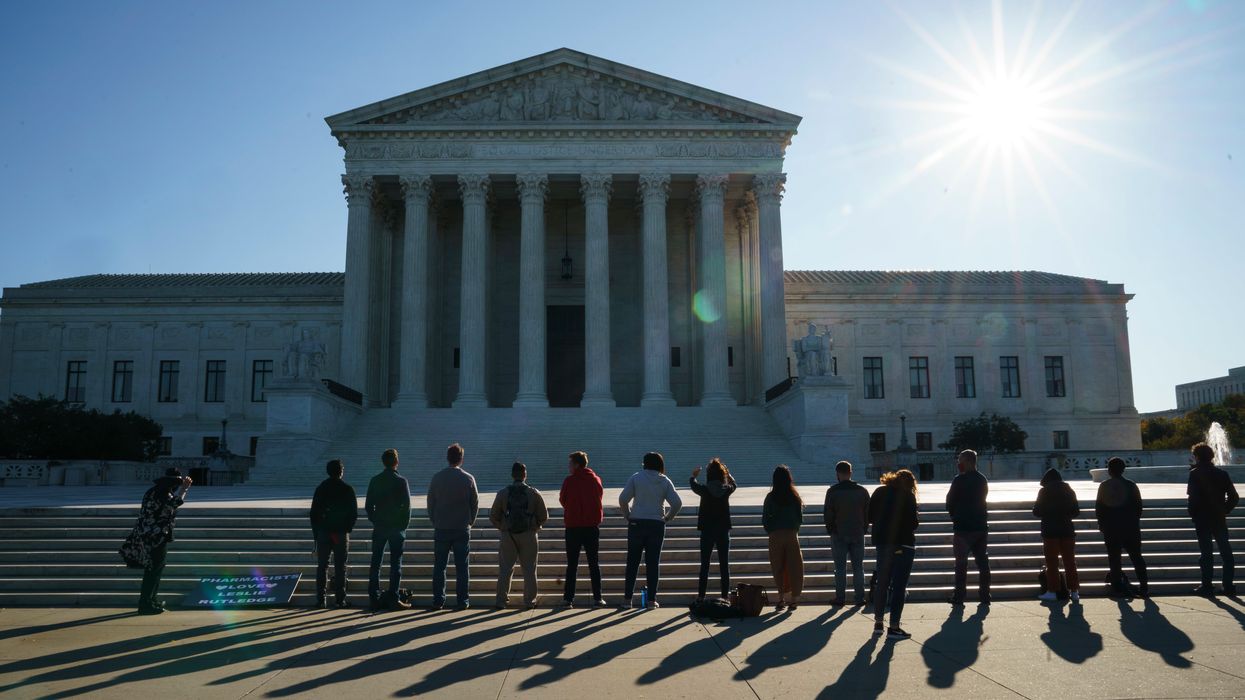Do political independents have a constitutional right to get a shot at public office, or can some government posts be reserved only for Republicans and Democrats in the name of ensuring bipartisanship?
That was the question the Supreme Court deliberated Monday, the first oral arguments of a new term where its own ideological tilt hangs in the balance — and where a matter even more fundamental to a functional and fair democracy, the outcome of the presidential election, looms as a potential defining moment for the balance of power.
The first case, however, is profoundly important for those who see the red and blue duopoly as a main driver of both government dysfunction and distrust in government. They're hoping the court strikes down part of Delaware's Constitution that says justices on the state's top court, and judges on several other benches, must be either Democrats or Republicans.
Although the case is about a single state, ruling against such a balancing requirement could upend the appointment systems a dozen states use, instead of elections, to fill their courts — and rules designed to assure partisan balance on many federal regulatory agencies, such as the Federal Election Commission, and myriad state boards and commissions, including redistricting and ethics panels.
While the nature of the justices' questioning does not always signal their views, the hour of arguments suggested a majority of them are ready to uphold the Delaware system. That would require them to reverse the 3rd Circuit Court of Appeals, which last year struck it down as violating the constitutional rights of independents and minor-party members who aspire to judgeships.
There are centuries of precedent for political affiliation being deeply embedded in the judicial appointment process, Justice Brett Kavanaugh said, and Delaware appears to simply make explicit what is generally implicit. "Why is that different in kind?" he asked
Delaware's unique provision, adopted at the end of the 19th century, says judges affiliated with any one political party can make up no more than a "bare majority" on the state's highest courts, and the other seats must go to people from the "other major political party."
The challenge was mounted by James Adams, who was a registered Democrat while a family-law attorney for the state for a dozen years. He changed his party affiliation to independent after leaving government and decided he wanted to be a judge — but determined it was futile to apply in light of his new nonpartisan identity. He sued on the grounds that his First Amendment rights are being violated, and argued that the rule sends a terrible message about the intersection of partisanship and judging.
"Such a system assumes, without foundation, that Republicans and Democrats are monolithic in their judicial views and that their political views will control their decision-making," he wrote in his appeal. "Worse, it reinforces the fears of the public that judges will decide cases based on political affiliation."
The more important virtue, the state's attorney told the justices, is that the requirement has ensured one of the nation's most reliably bipartisan and balanced judiciaries even when the policymaking branches are dominated by one party. (Democrats have held the governorship and controlled the state Senate, which must confirm his judicial nominees, for almost three decades.)
The case was originally scheduled for oral argument in March, but was in the collection of cases put off for six months or longer because of the coronavirus. (The arguments were held by telephone, continuing a break with tradition brought on by the pandemic.)
The backdrop for the deliberations, of course, is the partisan balance of the high court itself. Five conservatives on the bench were nominated by Republican presidents and the three more liberal justices were named by Democrats. So the confirmation of appeals Judge Amy Coney Barrett — President Trump's pick to succeed Justice Ruth Bader Ginsburg, the progressive icon who died last month — looks to cement a decisive conservative majority on the court for decades.
Adopting 18-year term limits, growing the size of the court and using randomly selected rotating panels of justices for many cases are all proposals that have gained a wave of new attention in the days since Ginsburg died. Trump signaled at last week's debate that he's already planning to press the court, with or without all nine seats filled, to weigh in on the validity of the coming surge of mailed ballots, which he baselessly claims will lead to fraud that robs him of a second term
All of the reform proposals are aimed at reducing the partisan battling over high court appointments, the very topic the drafters of Delaware's Constitution said they had in mind in the 1890s when they wrote the provisions that were debated Monday.




















Trump & Hegseth gave Mark Kelly a huge 2028 gift